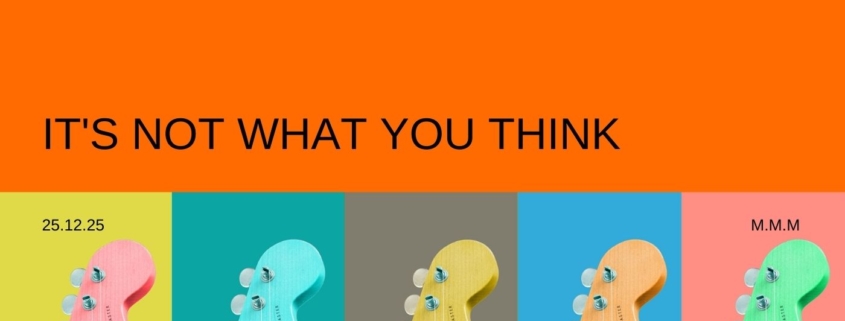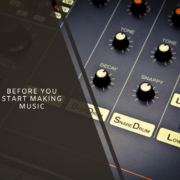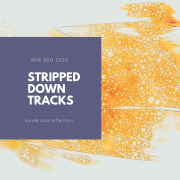The Problem With “Good” Music
Here’s the problem with good music – it’s subjective. One person’s idea of a “good” song is certainly different from someone else’s unless they come from a similar cultural background. And even with a shared cultural background, people still differ between what they think is good and what isn’t. This is similar to people calling music “interesting.”
The term interesting is subjective as well. What is interesting to me might not be interesting to you. For instance, I could enjoy a technical aspect of a song that someone who doesn’t understand that technical aspect might not care about.
Art Is Often Philosophical
The foundation for this article all started with a client of mine who came to me and asked if I could make his song interesting, which perplexed me, since as I said before, what’s interesting to me might not be interesting to someone else. This led to a debate about if it’s really the mandate of the artist to be interesting. Is it the artist’s fault if the music isn’t “interesting” enough? After all, music is subjective.
For instance, some people absolutely hate the music that’s on the radio, but if you’ve ever run a club, you know that it’s your Top 40 nights that are going to make you the most money. It’s reasonable to assume, that to the patrons, there is something about the music that makes it “interesting,” or else they probably wouldn’t be there. Sure, it might not be the music itself, but it could be the purpose… the intention.
I got the sense that my client doesn’t appreciate philosophical debates as I do, so they may have just been annoyed. But that’s what had me thinking about this article, because when people come to me and ask for me to make their track “interesting,” or “good,” I would like to have a reference to show them to help them describe what they really mean. So that’s what this article is about – giving people the tools to objectify something that is inherently subjective.
“Interesting” Is Intentional
Instead of interesting, it’s best to describe a context and/or an emotion that goes with it. Maybe you want the song to be exciting, emotional, tense, or have a narrative flow. Perhaps you imagine it in a soundtrack to a movie, or you want it played in a club. These will have different technical and compositional elements, which segment into their own specific terms.
For instance, if you want a song played in a club, that’s going to require more compression, and often more density so that it can keep up with the loudness of all the tracks it’s mixed with. However, if you want it to be in a soundtrack, it will be more transparent, and use frequencies that don’t clash with whatever it’s being overlaid with, whether that’s dialog, or foley sounds in the film, etc.
Also, the length of the song will matter. If someone comes to me and say, “I want a radio-friendly song” and they give me an 8-minute song, we have to figure out how to isolate 5 minutes of it for a radio version. We may even have to add other compositional elements to so that there is a congruity to the song when we reduce it that significantly.
Nowadays, whether we like it or not, social media runs everything around us. There are tons of DJs who get gigs because they have a great social presence, rather than artistic output. That means, in order to compete, many artists who do have a sizable artistic output still have to do stuff for Instagram, or TikTok. And if it’s good for TikTok it might not be good for Spotify. I was reading an article about making music that grabs attention in the first 4 seconds, and if they don’t do that, then it will fail on places like Instagram Reels and Tiktok. Once again, these are things I need to know in order to make it “interesting” for those contexts.
The Axis Of “Interesting” Music
The aforementioned thoughts are best explained by an axis, I think. This axis is pretty arbitrary, as it’s my own personal one, but I think it does a good job illustrating the intention of music in general.
The axis is a pie chart of purpose, emotion, and technicality. Then somewhere surrounding that pie chart is distribution.
When all of the elements are congruent, then magic happens. If they are off-kilter, there is a good chance it won’t sound right.
Purpose is the context: is it meant for the club, is it meant for at-home listening, is it meant for a movie, etc? Emotion is the existential part of it; it’s the part that makes it feel human. If it’s too emotional, then it may not develop, or it may seem campy, or annoying. Technicality is the musicianship and the engineering on it. While you want it to be technically sound, if it’s too technical, like a Dream Theater album, then it might sound emotionless, or pretentious. However, if there is too little technicality, then it might sound sloppy. Having a balance of these to fit your goal is the key.
Sometimes songs are “purposely” untechnical. These are the songs that might sound kind of jangly or have poor mixing, but you can tell, based on the style of music, that this may have been intentional. Take “lofi” music for instance – it’s purposely mixed weird.
Or sometimes, things are purposely overly emotional in order to illustrate a point. Maybe it’s part of a skit for a campy comedy/parody about romance or something of the sort. That is bound to need an overly emotional track.
However, what all of these examples have is a purpose, which grounds them.
Distribution is the final part. Is it going to be on vinyl, or is it made for TikTok? If it’s on vinyl, then certain mastering will be required. Also, you will need to consider the length of the songs as it has to fit on the grooves.
If it’s TikTok, as I mentioned earlier, you have to grab their attention in 4 seconds, or else it won’t carry on the algorithm properly.
Attention Matters
Right now, one of my projects is to create a 12-hour long ambient album. Do I expect it to be intently listened to? No, it’s background music that sets the mood.
The idea came from these playlists, or stations, that I leave playing for an entire day because it’s a presence that isn’t actively listened to. It’s more an atmosphere rather than for attention.
There are different levels of attention: passive (background), attentive (stopping what they do to listen with care), critical (either people who are trained with music theory/engineering listening for flaws). It’s up to the artist to set that intention.
What Is Your Intention?
A label once asked me for “good music” and I was like that doesn’t make any sense – I don’t go into the studio thinking I’m going to make “bad music.” I try to make something that is meaningful – that’s all
At the end of the day, the question is: what are you chasing? Are you chasing appreciation, artistic integrity, or attention? You can’t have all three, because you can’t please everyone. But does that really matter?












Leave a Reply
Want to join the discussion?Feel free to contribute!